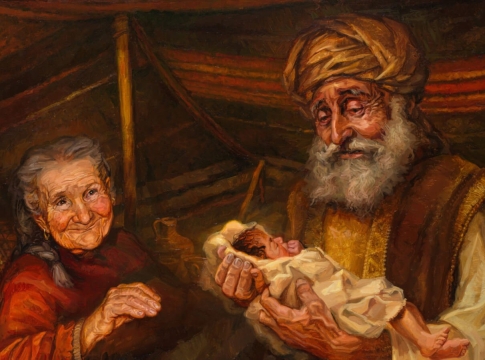
One of the most important figures in the New Testament is Paul, [followed by Jesus Christ]. Paul is a well-known figure in the book of Acts. The letters he wrote to many churches and people are preserved for us in the Bible. So, what can we infer about this man’s biography and who he was?
Historical background
First-century AD Jews made up Paul’s audience [(see chronology)]. When Jesus lived, died, and rose again, he was a young man. However, he wasn’t initially a follower of Jesus! Paul didn’t become a Christian until he had a close meeting with the rising Christ. He then journeyed across the Roman Empire as a missionary, serving both Gentiles and Jews.
A persecutor becomes a servant
As I mentioned earlier, Paul did not at first follow Jesus. To be honest, that is an understatement. Paul was a member of the Pharisees, a religious sect that believed Jesus was a blasphemer and that his disciples ought to be executed. Paul acknowledges, “I persecuted this Way to the death, binding and delivering both men and women to prison…” when reflecting on this time in his life. (Acts 22:4). And he really believed that by doing this, God would be happy!
Paul’s perspective is entirely altered by a close contact with the risen Christ. Paul now acknowledges that Jesus Christ is the Son of God and that He truly died and rose from the grave. Paul then decides to dedicate the rest of his life to following Jesus. He is aware that he is a sinner in need of God’s pardon and that his “being zealous for God” would never win him salvation. “Christ Jesus came into the world to save sinners, of whom I am the foremost,” he adds later in a letter to Timothy (1 Timothy 1:15).
Paul’s world has completely collapsed. For the remainder of his life, the formerly persecutor turns becomes a missionary. “I give thanks to Christ Jesus our Lord, for even though I was a blasphemer, a persecutor, and an arrogant opponent before, He found me trustworthy and appointed me to His service” (1 Timothy 1:12-13).
Paul travels the world to proclaim the Gospel
Now that Paul has personally witnessed the significance of [knowing Jesus Christ as his Lord and Savior], he is eager to spread the good news to others. In accordance with God’s design, that is: “Acts 9:15 says that he is a chosen instrument of Mine to carry My name before the Gentiles and kings and the children of Israel.” Paul can only do this work by the grace of God: In order for your confidence to rest in God’s power rather than human understanding, “And I was with you in weakness, fear, and great trembling, and my speech and my message were not in plausible words of wisdom, but in demonstration of the Spirit and of power.” (1)
Paul does not carry out his missionary activity alone; rather, he collaborates with churches, other Christians, and the apostles in Jerusalem. He shares the gospel, starts new churches, and stays in touch with these newly converted Christians to provide them with guidance, support, and correction while on other missionary trips.
Paul endures many hardships
The devil will attempt to undermine the Gospel wherever it is preached. Paul endures it [among his numerous hardships]: “being imprisoned, subjected to innumerable beatings, and frequently on the verge of death.” I was given forty lashes, less one, by the Jews five times. I received three rod beatings. I used to be high. I was shipwrecked three times, drifted at sea for a night and a day, and frequently traveled, facing danger from rivers, thieves, my own people, Gentiles, danger in the city, danger in the wilderness, danger at sea, and danger from false brothers. I also endured labor and hardship, many sleepless nights, hunger and thirst, often going without food, cold, and exposure (2 Corinthians 11:23–27).
Paul must endure all of this in order to uphold the name of Jesus (Acts 9:16). After reading this list of difficulties, it seems unlikely that anyone could endure under such conditions. However, Paul doesn’t have to manage everything by himself because, as he puts it in Philippians 4:13, “I can do all things through Him who strengthens me,” or through Jesus.
Paul struggles, but is longing to be with Jesus
Despite the fact that Paul affirms, “I have been crucified with Christ,” Despite the fact that “Christ lives in me, not I, anymore” (Galatians 2:20), he still battles sin. According to Romans 7:19, “For I do not do the good I want, but I keep doing the evil I do not want.” He is faced with his frailty even if he wishes to dedicate his entire life to God. Paul doesn’t give up though. His desire to spend eternity with Jesus is increased by his own shortcomings and struggles.
He gives testimony at the conclusion of his life, saying, “I have kept the faith, I have finished the race, and I have fought the good fight.” I now have the crown of righteousness set up for me. Timothy 4:7-8. Ultimately, nothing that Paul has accomplished in his life—not even his missionary success or good deeds—will be able to save him. Because he is aware that “the righteous shall live by faith” (Romans 1:17), he only has his faith in Jesus as his foundation.
Some lessons for us
- “Becoming a Christian” is not a trivial aspect of your existence. It is extremely significant and transformative. This was extremely evident in Paul’s life because of how drastically different it was from his previous one. Although it might not seem as dramatic from the outside, the change is nonetheless fundamental when it comes to other people.
- Paul’s relationship with Jesus shaped who he was. He addresses himself as “Paul, a servant of Christ Jesus” in a number of letters (Romans 1:1, for example). What is the essence of who you are? Your work, your family, your country, or your connection to Jesus?
- Paul demonstrates that God [can employ everyone in his service], regardless of how antagonistic they have previously been. Persons can undergo total transformation and be prepared for the work that God has for them.
- God does not guarantee an easy life for his offspring. Paul’s life was not simple. However, as Paul learned, God does promise to be with us in every situation.
- Based on his belief that he was saved by grace through faith, Paul lived his life (see, for example, Ephesians 2:8). Is this your life’s pillar of faith as well?
Thank you for the painting, GospelImages. Watch the film below for a stunning creative representation of Paul’s conversion from Sandy Tale.





